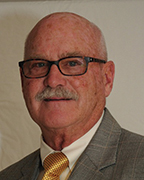Two factors affecting NH’s hospitality industry - part 2 - by Earle Wason
part one appeared in the March 4 edition
Feeling the Pinch
Lack of staffing is hurting revenue and operations. One owner of a large New Hampshire restaurant property said he had to close 3% of his dining room due to lack of kitchen staff. Another owner of an oceanfront hotel said he had his best and worst year ever, with record revenue while being consistently understaffed. He went on to explain that minimum wage was not an issue; he was offering $15 - $20 an hour for housekeepers. A third owner of a property even stated that they were pulling front of the house managers to work on the kitchen line. As Somers noted, while some businesses are getting H-2B employees, they aren’t getting enough to fully staff their operations. As a result, they sometimes have to turn down business offers simply because they don’t have the manpower.
Not only is it hard for the employers to find the help, but it’s even harder to adhere to the new regulations regarding the employment of H-2B holders, which were outlined in a 104-page ruling produced by the departments of Labor and Homeland Security in April. “There is a lot of paperwork to fill out,” said Sim Willey, the owner and operator of Hart’s Turkey Farm in Meredith. He said he uses both an agent and an attorney to help him with the process. Last year, he got all 15 full-time H-2B visa holders he requested. There were some nervous moments last spring for Willey and other businesses that use H-2B workers. On March 4, a Florida court ruled that, under the Immigration and Nationality Act, the Labor Department does not have the authority to issue legislative rules governing the H-2B program.
After the ruling, both federal departments stopped processing H-2B visas applications until March 18, when a different order allowed the process to continue for a set period of time to avoid a detrimental effect on employers. The ruling stating the new regulations came on April 29.
According to Willey, the H-2B employees are crucial to business when tourists flood the Lakes Region in the summer, not only to Hart’s but to a lot of hospitality businesses in the area. He went on to say that when the economy was poor back in 2009 and the unemployment rate was at 6.6 percent, local people were available to fill seasonal positions. Now that the economy is rebounding, there aren’t as many Granite Staters available to fill the positions. “As the economy gets better, it’s extremely important (to have H-2B workers available),” Willey said.
George Copadis, commissioner of the N.H. Department of Employment Security, further explained the issue. He said that with the unemployment rate at just 3.3 percent, when 3 percent is considered full employment, there are only about 24,000 in New Hampshire collecting unemployment at this time. He also explained that in the middle of the recession, New Hampshire had to borrow money from the Federal government in order to cover unemployment demand. Since then, that money has been returned and the trust fund now has a huge surplus. Additionally, two years ago at a major job fair, there were 1100 jobs available and 900 people showed up to interview. At the same job fair this year, the same number of jobs were available and only 300 people attended. This shows a clear need for additional workforce in the state, giving our economy the fuel to sustain and flourish.
To ensure the future of New Hampshire industries that rely on seasonal work, with unemployment rates at their lowest in recent history, the cap must be raised on these H-2B visas. Hopefully, our senators and congressmen are aware of this need, and more importantly, citizens and businesses are using their individual and collective voice to communicate this issue at a state level.
Earle Wason, CCIM, is president and owner of Wason Associates Hospitality Real Estate Brokerage Group, Portsmouth, NH.
Newmark negotiates sale of 10 Liberty Sq. and 12 Post Office Sq.

Four tips for a smooth 1031 Exchange - by Bill Lopriore

Make PR pop by highlighting unique angles - by Stanley Hurwitz

How COVID-19 has impacted office leasing - by Noble Allen and John Sokul










